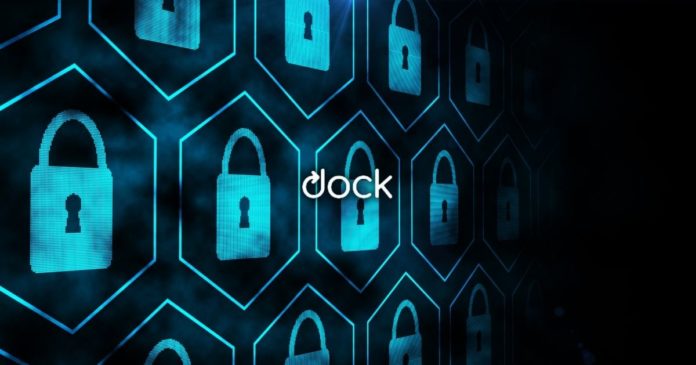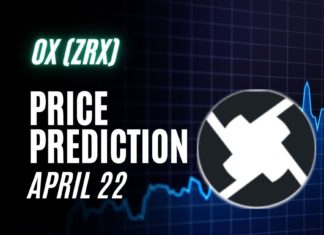Dock.io is one project leading a digital identity revolution. There is a great need for a shift from the traditional verification method. Almost every website has a cumbersome procedure that greets a user. In addition, most visitors to traditional websites face unpleasant cookie pop-ups.
This leaves their data vulnerable to all sorts of breaches. The frequent interruptions are in addition to the difficult demands of passwords and other measures that are yet to combat the growing rate of data theft. Dock.io is out to fix these digital loopholes.
Recent statistics have shown that traditional websites are incapable of waging war against data crimes or protecting users from them. As of 2021, about 281.5 million people suffered from cases of data breaches. This number is bound to grow unless there are better measures.
Several key human documents and certifications constantly face exposure to the wrong hands. As a result, there is a growing need to support the demand for safe and reliable data.
Is Web3 the Answer?
Web3 is changing the way the world has been over the last decade. Since the arrival of blockchain technology, various industries now have hope of fighting data theft. Web3 offers a safe way out of the predicament of the traditional website. Rather than a demand for cookies and passwords, Web3 presents people with a way to interact securely and quickly with a website.
With Web3, people no longer have to divulge information before accessing a site. Users can browse pseudo-anonymously, knowing they have full control over their data and who has access to it. Web3 helps both site owners and visitors. Website owners no longer need to store sensitive data about their users. With a wallet such as MetaMask, users can navigate a platform without the hassle of passwords and usernames. Furthermore, Web3-based solutions have already gained prominence in recent days. MetaMask claims to have over 20 million users that trust its service and data protection policies.
Decentralized Identifiers and Verifiable Credentials
Although the Web3 model does not permit the sharing of personal and private data, there is a need to verify digital identities. For example, certain web transactions, such as loans, would require some sort of personal information in a way that subscribes to the privacy model of Web3. The W3C standards on Decentralized Identifiers (DIDs) and Verifiable Credentials (VCs) provide the answer to such scenarios.
DIDs are a newer version of identifier that allows for decentralized, verified digital identification. Both DIDs and VCs have linked verifiable information that only the user can control. DIDs are independent of centralized repositories. Other persons may assist in the finding of information relating to a DID. However, the design allows the DID’s controller to prove authority over it without the need for authorization from anybody else.
DID and VC verification takes place in several ways. For example, users can only share their date of birth with selective disclosures instead of sharing an entire driver’s license. With DIDs and VCs, users will no longer have to choose between their user experience and their privacy within the Web3 ecosystem.
Also, DID and VCs also take place via Predicates. By predicate, users can simply prove their age rather than share an entire birth certificate. A third way is referred to as “zero-knowledge proofs.” Users can prove their citizenship without sharing sensitive details from their passports. In all of this, users enjoy their privacy.
Dock Offers a Way Out
Dock is a blockchain platform that makes digital verification easy. The platform helps businesses and developers verify and manage data in a way that adheres to the Web3 privacy practice. Dock is actively involved in solving the universal data problem. It ensures full user control over how data is shared and obtained.
Today’s professional world faces a challenge with the paper and PDF method of operation. Verifying PDF and paper certifications is time-consuming and not stress-free. Also, it is simple to manipulate paper certificates and PDF credentials to create phony credentials. This makes it harder for a company to verify credentials. As a result, most organizations have little faith in institutions that issue certificates.
In addition, paper certificates can easily be lost or damaged. Furthermore, there is a possibility that the verification process could go wrong. As a result, fake certificates could go unnoticed. However, Dock Certs offers a more stable and reliable solution.
Using Dock Certs
Organizations that want to issue VCs without writing a line of code can utilize Dock Certs. Using Dock Certs, these organizations do not have to alter their current work processes. In addition, Dock Certs is an alpha release and can be customized to suit any company’s needs.
Users can sign up for Dock Certs in only a few clicks and start creating their own DIDs and VCs. Following the creation of the credential, companies can send the holder a link in an email or a PDF/digital certificate. However, companies can send the credential as a JSON file that the holder can save in their credential wallet. These verifiable credentials can easily be confirmed using the cryptographic method. Furthermore, this method eliminates the possibility of falsification. As a result, companies can verify credentials without the fear of forgery.
Companies Can Have Their VC in Their App
Dock extended its services to organizations that intend to share variable credentials in a mobile application. The platform offers its own mobile SDK. Dock’s SDK is an excellent starting point for incorporating verified credentials and decentralized identity. It saves the time and expense of constructing an API from scratch. Furthermore, Dock’s SDK allows these organizations to:
- Incorporate Dock’s features into their own apps.
- Exercise complete control over the development, issuance, and authentication of verifiable credentials.
- Utilize Dock’s network to build their mobile applications.
Dock provides both ready-made and customizable VC and DID opportunities for companies and developers. Users can opt for whichever seems most convenient.
Dock Price Activity
$DOCK currently trades at $0.03259911. Furthermore, it has a 24-hour trading volume of $4,587,714. Users can buy $DOCK directly from the organization, which is a unique feature in the crypto world. Binance, Gate.io, Huobi, Kucoin, AAX, Hotbit, WazirX, and CoinDCX are among the exchanges where it can be purchased.
Moreover, for more great info, join us on Telegram to receive free trading signals.
Above all, for more cryptocurrency news, check out the Altcoin Buzz YouTube channel.
Disclaimer
The information discussed by Altcoin Buzz is not financial advice. This is for educational, entertainment, and informational purposes only. Any information or strategies are thoughts and opinions relevant to the accepted levels of risk tolerance of the writer/reviewers and their risk tolerance may be different than yours. We are not responsible for any losses that you may incur as a result of any investments directly or indirectly related to the information provided. Bitcoin and other cryptocurrencies are high-risk investments so please do your due diligence. This article has been sponsored by Dock.io. Copyright Altcoin Buzz Pte Ltd.




























